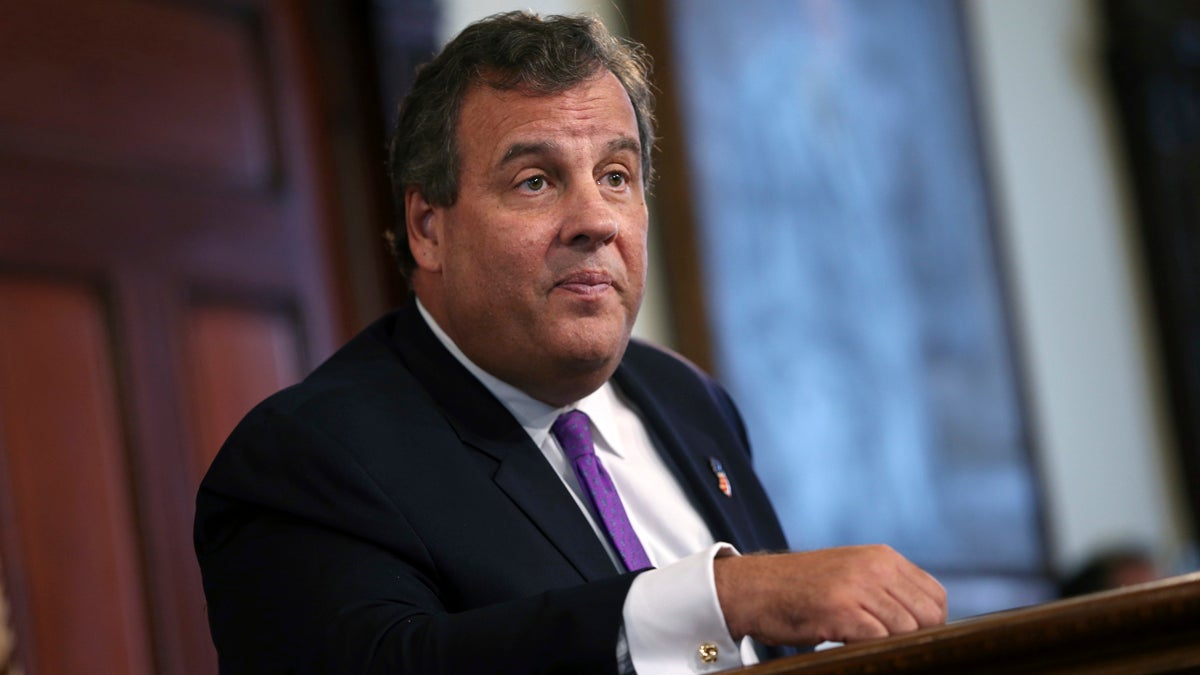Christie moves ahead with ending N.J.-Pa tax sharing agreement

Gov. Chris Christie listens to a question from the media Monday
New Jersey Gov. Chris Christie took the first step toward end a longstanding tax-reciprocity agreement with Pennsylvania, immediately drawing criticism from both sides of the Delaware River.
In a statement from a spokesman Friday, Christie vowed not to raise taxes and instead gave the required 120-day notice to end the tax-reciprocity deal that allows commuters who live on one side of the river but work in the other to pay state taxes only in the state where they reside.
“I am left with the least painful option I have to fulfill my constitutional duty to balance the budget for New Jersey taxpayers,” said Christie. “If the Legislature will come back next week and take the action necessary to reduce public employee health insurance costs, I can then consider revising this step.”
The current New Jersey budget deficit stands at $250 million. If Christie does not reconsider ending the agreement, the changes will go into effect Jan. 1.
Former New Jersey treasurer Andrew Sidamon-Eristoff estimated ending the agreement, which began in 1977, would add about $180 million to New Jersey’s coffers annually. For the last 39 years, Pennsylvania residents who work in New Jersey have been able to pay state income tax where they live, and vice versa.
Tax rates in the neighboring states vary widely because Pennsylvania has a uniform rate for all incomes and New Jersey has many different tax brackets.
New Jersey Senate President Steve Sweeney, D-Gloucester, released a statement citing analysis from the Office of Legislative Services that says 100,000 New Jersey residents will end up paying $1,000 more a year under the deal. The same analysis says those earning less thatn $110,000 a year will end up paying more without the agreement. Scrapping the deal will likely hit hard South Jersey commuters working in Philadelphia and paying the city wage tax there.
And it may end up costing Philadelphia millions in lost wage tax returns.
One of the main arguments against ending reciprocal agreement for New Jersey politicians is that low-income workers who commute to Pennsylvania will suffer more, under the commonwealth’s less progressive tax code.
“The burden falls completely on working families in New Jersey, especially those in South Jersey who work in Philadelphia, and will have a very real impact on their quality of life,” said Sweeney in a statement. For Pennsylvania residents who commute, people in higher income brackets will end up paying more under New Jersey’s tax code.
Prior to the decision, Kevin Hensil, communications director for the Pennsylvania Department of Revenue, said the impact on the commonwealth would be a $5 million drop in revenue.
“Gov. [Tom] Wolf hopes that Gov. Christie will change his mind,” wrote Hensil.
Currently, 123,650 people live in New Jersey and commute to Pennsylvania, while 121,698 live in Pennsylvania and commute to New Jersey, according to recent U.S. Census data. In Pennsylvania, Bucks County sends the single largest number of workers to New Jersey, with 40,011.
“If the agreement was ended, these taxpayers would begin filing returns in both states. The state where the taxpayer lives would offer a credit for taxes paid to the other state, however any remaining tax liability would be owed to the state of residence,” Hensil wrote.
Christie isn’t the first New Jersey governor to consider ending the deal. Jim McGreevey proposed ending it for similar reasons, but abandoned the idea when Democrats from South Jersey mobilized against the idea.
This is a developing story. Please check back for updates.
WHYY is your source for fact-based, in-depth journalism and information. As a nonprofit organization, we rely on financial support from readers like you. Please give today.




